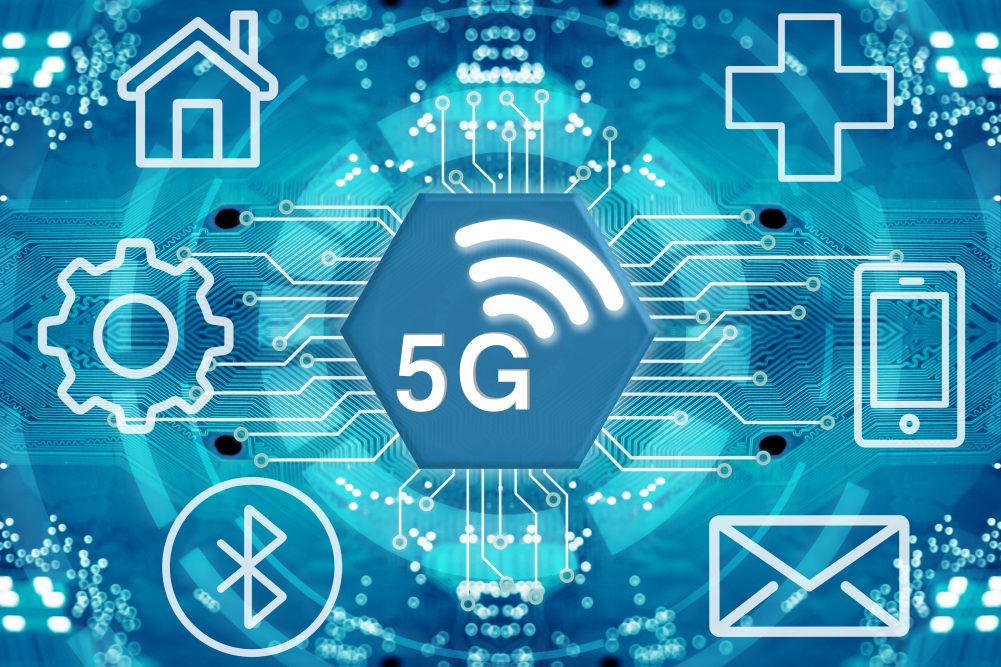Unveiling the Secrets of Ghosted Domains
Explore the intriguing world of expired domains and online opportunities.
5G and the Race for the Fastest Internet Ever
Discover how 5G is revolutionizing the internet speed race and what it means for your online world! Don't miss out on the future!
What is 5G and How Does it Work?
5G, short for fifth generation, is the latest iteration of cellular technology that promises to revolutionize mobile communication by providing faster speeds, lower latency, and the ability to connect a massive number of devices simultaneously. Unlike its predecessors, such as 4G, which primarily focused on enhancing mobile broadband services, 5G opens up a new world of possibilities, including the Internet of Things (IoT), smart cities, and autonomous vehicles. With its ability to transmit data at peak speeds of up to 10 Gbps, 5G is set to transform various industries by supporting advanced applications that require near-instantaneous data transfer.
The technology behind 5G operates on a complex system of radio frequencies and advanced network architecture. Utilizing a combination of millimeter waves, small cells, and massive MIMO (Multiple Input, Multiple Output) technology, 5G can cater to a wide array of frequency bands, significantly enhancing capacity and efficiency. This allows for improved signal quality, even in densely populated areas. Additionally, the 5G network is designed to be more flexible and scalable, enabling telecom operators to deploy it alongside existing 4G networks seamlessly while ensuring compatibility with a wide range of devices.

The Benefits of 5G: Faster Internet and Beyond
5G technology represents a significant leap forward in mobile network capabilities, offering unparalleled speed and connectivity. With download speeds that can exceed 10 Gbps, 5G enables users to stream high-definition content without buffering and download large files in mere seconds. This rapid connectivity is not just a luxury; it enhances productivity for businesses and individuals alike. Whether you're gaming, working remotely, or enjoying multimedia entertainment, the benefits of 5G allow for seamless experiences that were previously unimaginable.
Beyond faster Internet, 5G paves the way for a multitude of innovative applications that can transform daily life. Enhanced connectivity empowers technologies such as the Internet of Things (IoT), enabling smart cities and advanced healthcare solutions. For instance, with 5G, real-time data transmission in smart vehicles can improve safety and efficiency on the roads. Moreover, industries are likely to see optimized operations through improved automation, creating new avenues for growth and sustainability. As 5G continues to roll out globally, its potential impact on technology and society at large is truly promising.
5G vs. Previous Generations: How Fast Can We Go?
The evolution of mobile networks has seen significant leaps from 1G to 5G, each generation offering enhanced speed and improved connectivity. While 1G provided basic voice calls, 2G introduced SMS and limited data services. 3G marked a major advancement with data rates up to 2 Mbps, paving the way for mobile internet browsing and video calling. 4G further revolutionized the landscape, boasting speeds of up to 100 Mbps, enabling seamless streaming and high-definition content. Now, with 5G, we are entering an era where theoretical speeds can reach up to 10 Gbps, promising to transform not only how we communicate but also how we experience the digital world.
But how fast can we actually go? The true potential of 5G lies in its low latency and massive connectivity capabilities. With a latency of as low as 1 millisecond, 5G enables real-time applications like augmented reality (AR), virtual reality (VR), and autonomous vehicles. According to industry experts, as networks evolve and become more widespread, we could expect average speeds to drastically improve, making it feasible for applications that were previously unimaginable. As we look ahead, the race for even faster connections is on, with discussions about 6G already sparking interest, hinting that our journey in mobile communication is far from over.